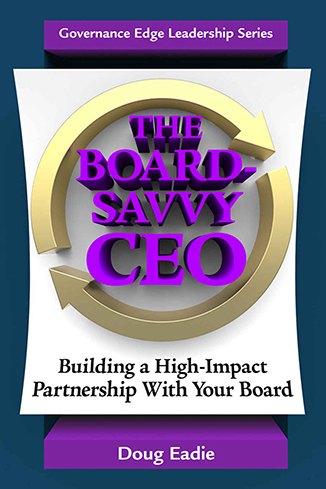 I could see several raised eyebrows in the CEO workshop I was running in Minneapolis a couple of weeks ago. I’d told the group that in recent years I’d begun to avoid the conventional leadership and management literature and, instead, was looking to history and serious fiction for inspiration and education in my work. There are two basic problems with the steady stream of books and articles on leadership and management, I said. First is the plethora of re-cycling and re-packaging going on: making conventional concepts sound innovative by weaving in minor variations and coming up with new names to describe them – Yogi’s “déjà vu all over again.” The second problem with the literature is the tendency to focus on operational tactics rather than more fundamental concepts. I’m not sure I convinced everyone in the room to expand and enrich their reading, but to judge from the discussion I definitely captured their attention and got them thinking in fresh ways about their continuing self-education.
I could see several raised eyebrows in the CEO workshop I was running in Minneapolis a couple of weeks ago. I’d told the group that in recent years I’d begun to avoid the conventional leadership and management literature and, instead, was looking to history and serious fiction for inspiration and education in my work. There are two basic problems with the steady stream of books and articles on leadership and management, I said. First is the plethora of re-cycling and re-packaging going on: making conventional concepts sound innovative by weaving in minor variations and coming up with new names to describe them – Yogi’s “déjà vu all over again.” The second problem with the literature is the tendency to focus on operational tactics rather than more fundamental concepts. I’m not sure I convinced everyone in the room to expand and enrich their reading, but to judge from the discussion I definitely captured their attention and got them thinking in fresh ways about their continuing self-education.
That workshop popped into my mind early this morning while I was re-reading a section of Doris Kearns Goodwin’s brilliant study of Franklin and Eleanor Roosevelt’s partnership during World War Two, No Ordinary Time, which I consider one of the finest books on leadership at the highest level, along with her best-selling Team of Rivals, which I’ve recently re-read. If there’d been time in the workshop, I would have explored some of the lessons I’ve learned from these and other biographies I’ve read over the years that have, I think, infused my work with greater power. For example, Goodwin’s Team of Rivals, by examining President Lincoln’s relationships with his cabinet members during the Civil War, has made me think seriously about the concept of what I call “true humility”: the invaluable capacity of a leader to listen to, to learn from, and to capitalize on the skills and knowledge of persons who are anything but loyal allies, much less friends – the kind of people we can easily just block out without a thought. The truly humble leader exemplified by Lincoln is hardly a wimp; on the contrary, she is so strong and self-confident that she doesn’t need to be surrounded by fawning acolytes to bolster her ego.
And Goodwin’s No Ordinary Time beautifully captures one of the most powerful leadership skills: direct communication that both educates and inspires. This is especially important in times of crisis, such as World War Two. Franklin Roosevelt was, without question, a master of communication. Early this morning I was reading Goodwin’s account of his fireside chat in June 1942, which was intended to explain the impending nationwide rubber drive and ask people to pitch in. According to Goodwin, the response was “overwhelming,” increasing the nation’s stockpile of rubber by more than 400 tons. Roosevelt well knew that it wasn’t enough to explain why the drive was needed; he also had to invite active participation, expanding Americans’ ownership of the initiative and making them feel like vital participants in a grand enterprise.
What “serious” fiction has done for me on the leadership front is strengthen my emotional self-awareness so that I can avoid the kind of self-sabotage that can alienate colleagues and lessen impact. But that’s another story for another post. Meanwhile I’d love to hear from you about particular works of history and fiction that have deepened your understanding of leadership and management.





